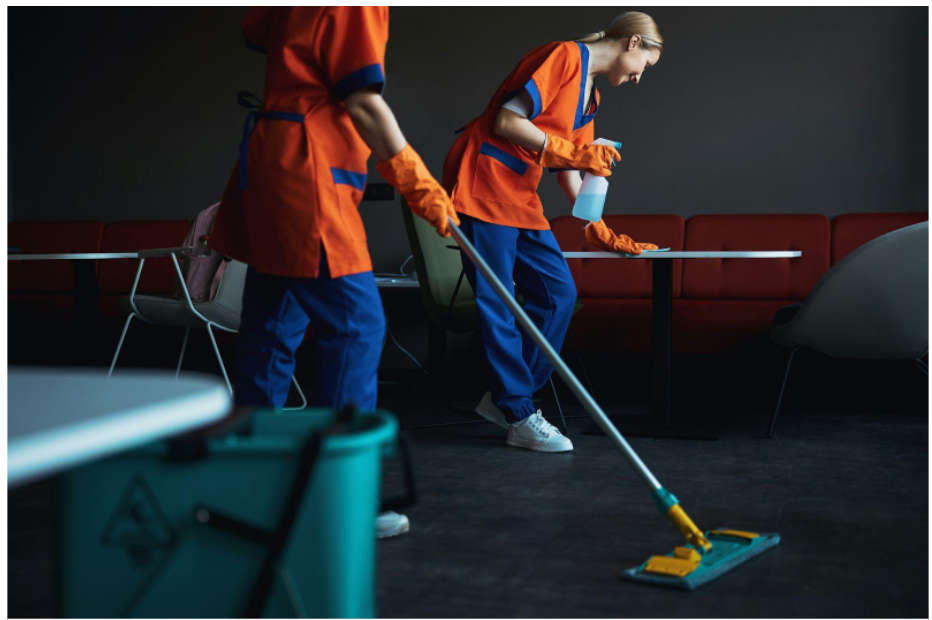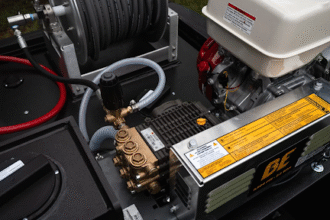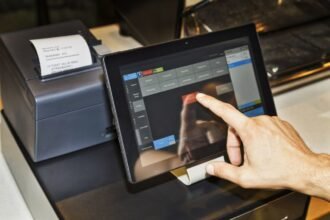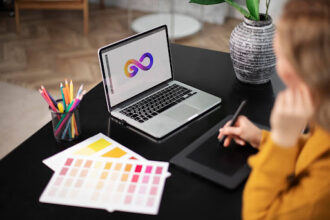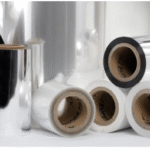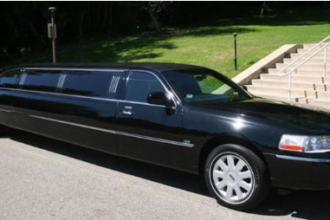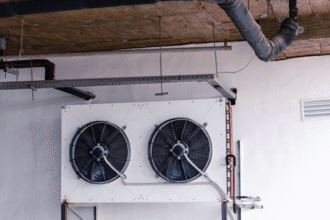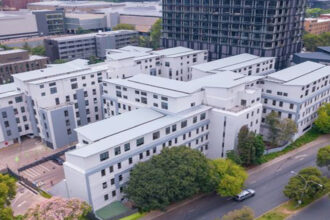Image from Unsplash
- The New Clean: From “Nice-to-Have” to “Non-Negotiable”
- From Boutique Lodge to Urban Loft: Clean-Tech in Action
- Work Meets Stay: The Rise of Blended Spaces
- Smart Scheduling & Sensor-Based Monitoring
- Sustainable Cleaning: Good for Guests, Better for Business
- Airbnb vs. Hotel: Who’s Doing It Better?
- Future Innovations: What’s Next for Clean Mobility Spaces?
When it comes to modern travel, most people focus on convenience: the right app, a smooth check-in process, or fast Wi-Fi. But what often goes unnoticed is the invisible infrastructure keeping your stay comfortable, safe, and clean. Whether you’re renting a studio on Airbnb, checking into a rural lodge, or booking a desk at a shared workspace, the silent work of cleaning technology is what truly keeps the experience running.
From advanced air filters to autonomous floor scrubbers, today’s rental spaces are powered by a behind-the-scenes ecosystem of tools designed to meet growing expectations for hygiene and efficiency. And in some cases, learning how to clean the floor of a warehouse can offer surprising insights into how commercial spaces are cleaned just as thoroughly as high-end hospitality venues.
Let’s take a closer look at the unsung innovations transforming mobility-based accommodations into guest-ready environments, every single day.
The New Clean: From “Nice-to-Have” to “Non-Negotiable”
In a post-pandemic world, cleanliness isn’t just a perk. It’s a baseline requirement. Guests expect rentals to look and feel spotless. More importantly, they want to trust that shared spaces are properly sanitized, something that used to be assumed, but is now actively evaluated by consumers through reviews and visual inspections.
To meet this demand, hosts and property managers have shifted from traditional cleaning methods to automated, trackable, and industrial-grade equipment. What once required multiple staff members or costly deep-cleans can now be streamlined through smart machines, data-driven scheduling, and better training.
From Boutique Lodge to Urban Loft: Clean-Tech in Action
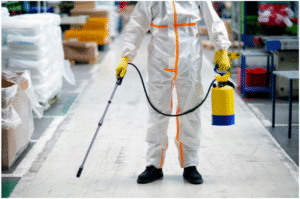 9
9
Image from Unsplash
The rise of self-managed rentals has accelerated the need for efficient, consistent, and low-effort cleaning systems. Here’s how hosts and managers are using tech to improve guest experience while saving time and resources:
1. Autonomous Floor Scrubbers and Extractors
Large properties or shared workspaces often face the challenge of cleaning expansive hard surfaces. Just like commercial warehouses, these spaces benefit from using automated floor scrubbers. These machines:
- Save labour hours
- Reduce water and chemical use
- Provide consistent results
The cleaning techniques used in industrial settings are now being scaled to suit the hospitality sector, especially for co-working spaces or hybrid office-hotels.
2. Electrostatic Sprayers and Air Purifiers
For disinfection, hosts are turning to electrostatic spray systems that evenly coat surfaces with sanitising agents. These tools are effective, fast, and often paired with HEPA-grade air purifiers to reduce airborne pathogens between guest stays, key for allergen control as well.
Work Meets Stay: The Rise of Blended Spaces
As remote work continues to blur the lines between travel and employment, co-working amenities have become expected features of many Airbnbs, boutique hotels, and hybrid “live-work” spaces.
The result? Shared responsibility for cleanliness and maintenance, often backed by tech. Examples include:
- Desk sanitising stations
- App-managed booking and clean intervals
- Smart locks and voice-activated climate controls
These measures not only improve user experience, but also optimize space turnover, letting managers safely accommodate more guests in less time.
Smart Scheduling & Sensor-Based Monitoring
One of the biggest shifts in maintenance tech is automation and data. Rather than relying on fixed schedules or staff checklists, hosts now use:
- IoT-connected sensors to detect occupancy, temperature, and air quality
- Cleaning alerts triggered by usage patterns or time since last service
- Mobile dashboards to track tasks across multiple properties
For large-scale operators managing multiple locations, this technology makes it possible to run highly-efficient, decentralized rental networks with consistent standards.
According to a report by the U.S. Environmental Protection Agency (EPA), indoor pollutants can be two to five times higher than outdoor levels, especially in poorly ventilated or frequently occupied spaces. This highlights why modern hosts are investing not just in appearance, but in air quality and environmental health, too.
Sustainable Cleaning: Good for Guests, Better for Business
Another major trend in rental cleaning tech is sustainability. More travellers are seeking eco-conscious stays, and hosts are responding by using:
- Microfiber cloth systems to reduce chemical use
- Refillable, concentrated cleaning solutions
- Low-water-use scrubbers and vacuums
This eco-first approach not only appeals to environmentally aware guests but also cuts operational costs. In fact, equipment that supports cleaning efficiency and waste reduction tends to pay for itself over time, particularly for managers overseeing multiple properties.
Airbnb vs. Hotel: Who’s Doing It Better?
With hotels long known for their polished presentation, many would assume they outperform Airbnbs in cleanliness. But recent studies suggest otherwise.
Thanks to accountability via guest reviews, Airbnb hosts are increasingly adopting industrial-level practices. Unlike some traditional hotels, independent hosts:
- Personally inspect units between guests
- Outsource to high-tech cleaning services with documented procedures
- Use tech-forward tools that allow real-time updates and problem alerts
Meanwhile, hotels are playing catch-up by retrofitting older infrastructure with smart cleaning systems, especially in budget and mid-tier brands.
Future Innovations: What’s Next for Clean Mobility Spaces?
The future of cleanliness in mobile and rental spaces is likely to include:
- UV-C sterilisation robots for overnight surface treatment
- Blockchain-based cleanliness certification visible to guests before check-in
- AI predictive maintenance, where systems anticipate breakdowns or hygiene risks before they occur
All of this aims to reduce human error, boost transparency, and keep pace with the ever-growing expectations of modern travellers and professionals.
We tend to associate modern hospitality with things we can see, sleek decor, upgraded amenities, and digital convenience. But what truly powers guest satisfaction is often hidden in the background: the tech quietly working to ensure every stay is as clean, safe, and comfortable as the last. And while guests may never notice the industrial scrubber behind the scenes, or the algorithms scheduling cleaning rotations, their presence is essential. As the line between work, travel, and home continues to fade, keeping shared spaces ready for use, efficiently and invisibly, is what makes today’s mobile lifestyle possible.
Because at the end of the day, whether you’re booking a weekend retreat or co-working in a converted warehouse, someone had to know how to clean the floor of a warehouse, and do it well, before you arrived.


